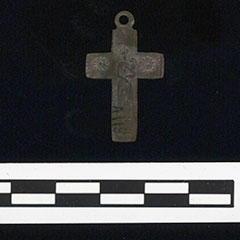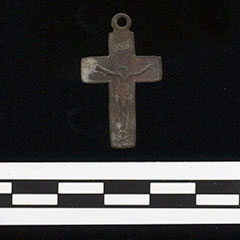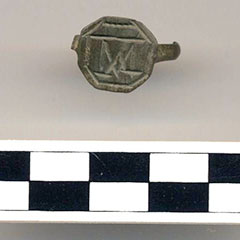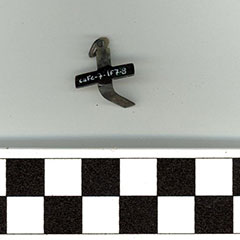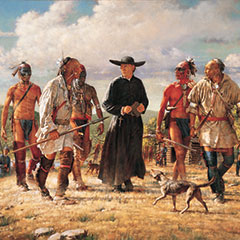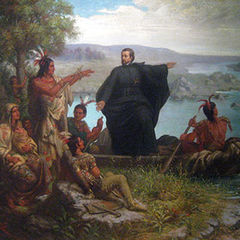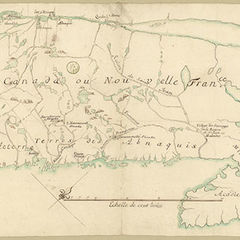The Jesuits: between Politics and Conversion
The Jesuits founded the mission on the Saint-François River at the beginning of the 18th century. Fathers Bigot, Loyard and Aubery were the first missionaries. These Jesuits actively participated in implementing the policy of the government of New France aimed at maintaining relations with its First Nations allies. To support these valuable partners in the war against the British, the Jesuits urged the King of France to give land to the Abenakis and provide them with weapons and various goods.
The Abenakis were in a difficult situation politically. Since the Treaty of Utrecht in 1713, which handed Acadia over to England, their territory had been split between the crowns of Britain and France. Several Abenaki groups took refuge at the mission on the Saint-François River, which served as a rampart against British and Iroquois invasions. Among these newcomers was Chief Atecouando who arrived at the mission, in the company of 60 warriors, from Pégouaki or Pequawket, now the municipality of Fryeburg, Maine, on the Saco River. The arrival of these warriors swelled the ranks of the French military. Father Aubery, who was a shrewd political strategist, sought to keep these allies on the side of New France. Fluent in Abenaki, he met with all of the First Nation’s war chiefs in order to persuade them to maintain their alliance with the French. In fact, he even contributed to mounting tensions between the British and the Abenakis by encouraging the latter to carry out raids in New England.
In addition to being politically active, Father Aubery used his talents as an orator to persuade the Abenaki elders to adopt a European lifestyle and to combat drunkenness, superstition and other practices contrary to Catholic morality. He taught the Abenakis liturgical hymns in their own language and wrote books in Abenaki, including a dictionary, a hymnbook and numerous scholarly books. He died at the Saint-François mission in 1756, at the age of 83.

